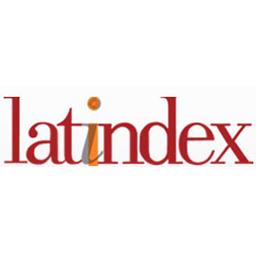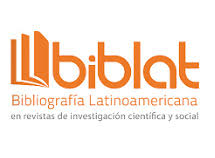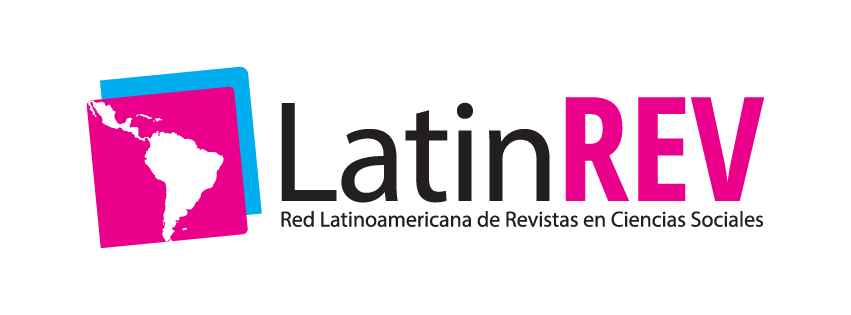La sostenibilidad de la actividad ganadera en Sonoyta, Sonora, México
Resumen
El contexto mundial enfrenta problemas medio ambientales, sociales y económicos que requiere de propuestas concretas para mejorar su situación. La clase política menciona a la sostenibilidad como la forma de superar estas problemáticas; sin embargo, existe confusión acerca de lo que representa y se ha estudiado poco en el país. Por ello, se diseñó un instrumento de medición para describir la sostenibilidad de los ganaderos de Sonoyta, Sonora, México. Los resultados indican que existen esfuerzos por lograr la sostenibilidad como el compromiso por reducir el consumo de recursos naturales y de combustibles fósiles, la capacitación laboral, la entrega de donativos, el ofrecimiento de un producto de calidad y el mejoramiento de sus procesos de producción; no obstante, existen retos como la falta de capacitación en el tema de reciclaje y el tratamiento de residuos tóxicos, la falta de apoyo a sus trabajadores para que sigan estudiando, y la necesidad de mejorar las ventas y ganancias, así como de la falta de incorporación de nuevas tecnologías. Por lo anterior, es necesario llevar a cabo nuevos estudios para descubrir la problemática que enfrentan los productores en otras partes del país y brindarles mayor apoyo a través de nuevas políticas públicas.
Palabras clave
Texto completo:
PDFReferencias
Azapagic, A. (2003). Systems approach to Corporate Sustainability: A General Management Framework. Trans Institution of Chemical Engineers, 81(B), 303-316. http://dx.doi.org/10.1007/s10551-011-1063-y
Cetinkaya, B., Cuthbertson, R., Ewer, G., Klaas-Wissing, T., Piotrowicz, W. & Tyssen, C. (2011). Sustainable supply chain management: practical ideas for moving towards best practice. Heidelberg, Alemania: Editorial Springer.
Ceasar, N. & Page, N. (2013). A time and place for sustainability. Journal of Management Development, 32(3), 268–276. http://dx.doi.org/10.1108/02621711311318300
Chardine-Baumann, E. & Botta-Genoulaz, V. (2014). A framework for sustainable performance assessment of supply chain management practices. Computers & Industrial Engineering, 76, 138–147. http://dx.doi.org/10.1016/j.cie.2014.07.029
Cheung, K.F. & Rowlinson, S. (2011). Supply chain sustainability: a relationship management approach. International Journal of Managing Projects in Business, 4(3), 480-497. http://dx.doi.org/10.1108/17538371111144184
Closs, D. J., Speier, C. & Meacham, N. (2011). Sustainability to support end-to-end value chains: the role of supply chain management. The Journal of the Academy of Marketing Science, 39, 101-116. http://dx.doi.org/10.1007/s11747-010-0207-4
Cronin Jr., J., Smith, J., Gleim, M., Ramirez, E. & Dawn, J. (2010). Green marketing strategies: an examination of stakeholders and the opportunities they present. The Journal of the Academy of Marketing Science, 39, 158-174. http://dx.doi.org/10.1007/s11747-010-0227-0
Dey, A., LaGuardia, P. & Srinivasan, M. (2011). Building sustainability in logistics operations: a research agenda. Management Research Review, 34(11), 1237-1259. http://dx.doi.org/10.1108/01409171111178774
Espinosa, J., Wiggins, S., González, A. & Aguilar, U. (2004). Sostenibilidad económica a nivel de empresa: aplicación a unidades familiares de producción de leche en México. Técnica Pecuaria en México, 42(1), 55-70. Recuperado de http://www.redalyc.org/articulo.oa?id=61342105
Glover, J. L., Champion, D., Daniels, K.J. & Dainty, A.J. (2014). An Institutional Theory perspective on sustainable practices across the dairy supply chain Int. The International Journal of Production Economics, 152, 102–111. http://dx.doi.org/10.1016/j.ijpe.2013.12.027
Hamelin N. & Nwankwo, S. (2013). Managing the environment, people and herds: sustainability of the Moroccan cedar forest. World Journal of Science, Technology and Sustainable Development, 10(4), 260-277. http://dx.doi.org/10.1108/WJSTSD-08-2013-0035
Ionescu, V.C. (2009). The internal potential of the sustainable organization. Economic, social, political and cultural problems of the future society, 10, 52-59. Recuperado de: https://www.ceeol.com/search/article-detail?id=540195
Kajikawa, Y. (2008). Research core and framework of sustainability science. Sustainability Science, 3, 215–239. http://dx.doi.org/10.1007/s11625-008-0053-1
Lorenz, D. & Lützkendorf, T. (2008). Sustainability in property valuation: theory and practice. Journal of Property Investment & Finance, 26(6), 482–521. http://dx.doi.org/10.1108/14635780810908361
Morali, O. S., C. (2013). A Review of Sustainable Supply Chain Management Practices in Canada. The Journal of Business Ethics, 117, 635–658. http://dx.doi.org/10.1007/s10551-012-1539-4
Renukappa, S., Egbu, C. Akintoye, A. & Goulding, J. (2012). A critical reflection on sustainability within the UK industrial sectors. Construction Innovation, 12(3), 317-334. http://dx.doi.org/10.1108/14714171211244578
Rocha-Vencato, C. H., Maffini-Gomes, C., Scherer, F.L., Marques Kneipp, J. & Schoproni Bichueti, R. (2014). Strategic sustainability management and export performance. Management of Environmental Quality: An International Journal, 25(4), 431-445. http://dx.doi.org/10.1108/MEQ-02-2013-0014
Rossing, W. A., Jansma J.E., De Ruijter, F.J & Schans, J. (1997). Operationalizing sustainability: exploring options for environmentally friendly flower bulb production systems. European Journal of Plant Pathology, 103, 217–234. http://dx.doi.org/10.1023/A:1008609624648
Schacht, K., Leal Filho, W., Koppe, W., Struksnaes, G. & Busch-Stockfisch, M. (2010). Sustainability as a new paradigm regarding food consumption. British Food Journal, 112(5), 476-488. http://dx.doi.org/10.1108/00070701011043736
Speiser, B., Stolze, M., Oehen, B., Gessler, C., Weibel, F.P., Bravin,…Tamm, L. (2013). Sustainability assessment of GM crops in a Swiss agricultural context. Agronomy for Sustainable Development, 33, 21–61. http://dx.doi.org/10.1007/s13593-012-0088-7
Statistics New Zealand. (2008). Statistics New Zealand’s framework for measuring sustainable development. Wellington: Statistics New Zealand. Recuperado de: http://archive.stats.govt.nz/~/media/Statistics/browse-categories/environment/ sustainable-development/framework-measuring-sd/ffmsd.pdf
Validi, S., Bhattacharya, A., & Byrne, P. J. (2014). A case analysis of a sustainable food supply chain distribution system: A multi-objective approach. International Journal of Production Economics, 152(0), 71-87. http://dx.doi.org/10.1016/j.ijpe.2014.02.003
Velázquez-Álvarez, L. V. & Vargas-Hernández, J.G. (2012). La sostenibilidad como modelo de desarrollo responsable y competitivo. Ingeniería de Recursos Naturales y del Ambiente, 11, 97-107. Recuperado de: https://www.redalyc.org/pdf/2311/231125817009.pdf
Zailani, S., Jeyaraman, K., Vengadasan, G., & Premkumar, R. (2012). Sustainable supply chain management (SSCM) in Malaysia: A survey. International Journal of Production Economics, 140(1), 330-340. http://dx.doi.org/10.1016/j.ijpe.2012.02.008
Enlaces refback
- No hay ningún enlace refback.
Copyright (c) 2022 Regiones y Desarrollo Sustentable

Este obra está bajo una licencia de Creative Commons Reconocimiento 4.0 Internacional.
REGIONES Y DESARROLLO SUSTENTABLE
Año XXIII, No. 44, Enero-Diciembre, 2023, es una revista de publicación continua editada por El Colegio de Tlaxcala, A.C., Avenida Melchor Ocampo No. 28, Col. San Pablo Apetatitlán, Apetatitlán de Antonio Carvajal, Tlaxcala, C. P. 90600 Tel. 52 (246) 46 4 52 33, ext. 1135, http://www.coltlax.edu.mx/openj/index.php/ReyDS, rev_regionesydesarrollosustentable@coltlax.edu.mx Editor responsable: Arturo Juárez Martínez. Reserva de Derechos al Uso Exclusivo No., ISSN:2594-1429, otorgados por el Instituto Nacional de Derecho de Autor. Responsable de la última actualización de este número, Departamento de Ediciones de El Colegio de Tlaxcala, A.C., Arturo Juárez Martínez, Avenida Melchor Ocampo No. 28, Col. San Pablo Apetatitlán, Apetatitlán de Antonio Carvajal, C.P. 90600, fecha de última modificación: 02 de febrero de 2024.








